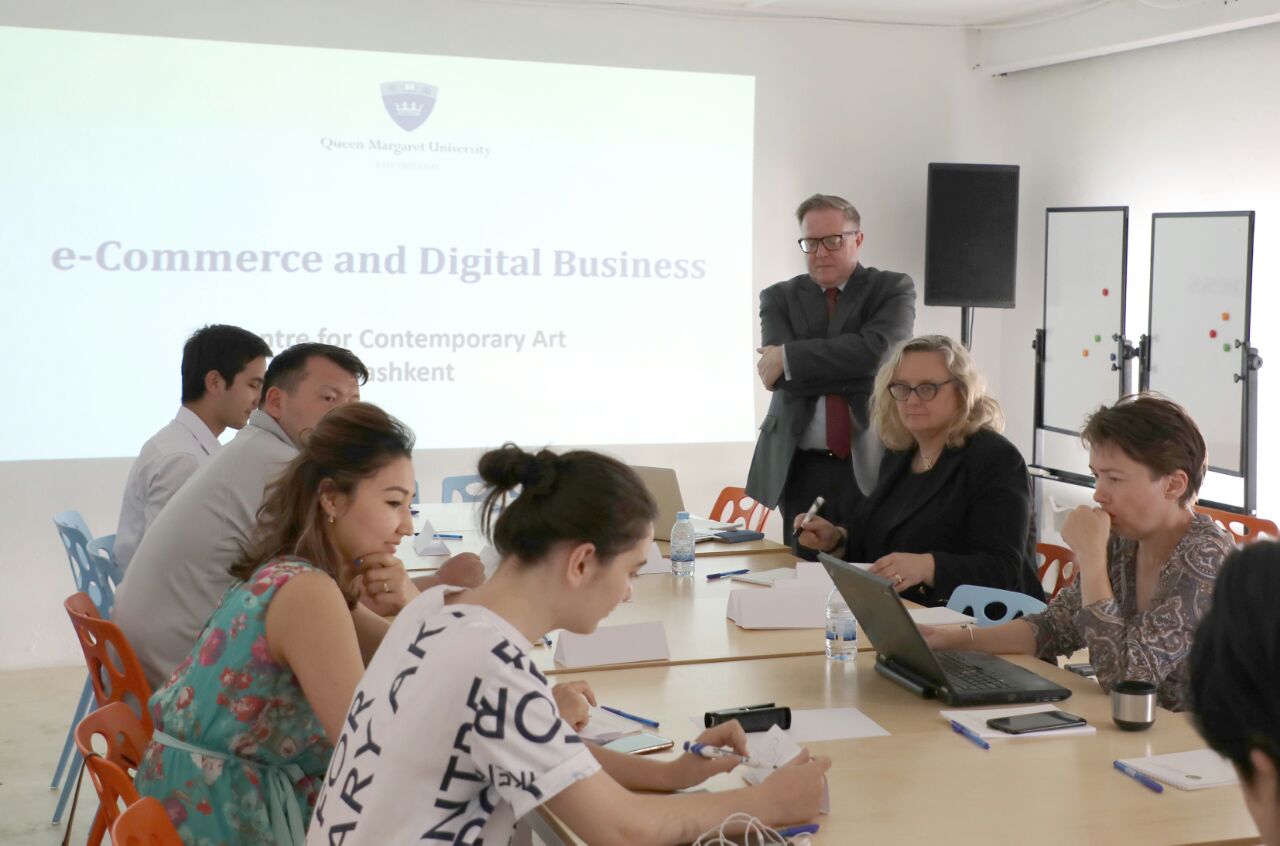On May 17, the Center for Contemporary Arts hosted the lecture “Electronic Commerce and Digital Business”, which was held as part of the Creative Spark’s five-year partnership program with the British Council. The program’s partner is the Art and Culture Development Foundation under the Ministry of Culture of the Republic of Uzbekistan.
The lecture speakers were: Mark Robinson, Program Manager for Tourism, and Claire Seaman, Professor from Queen Margaret University (United Kingdom).
The main focus of the lecture was on how museums and other cultural institutions can make a profit in a digital venue.
- The relationship between culture, art and business is often complex. The commercialization of art has its own risks and benefits. Is it necessary and can you make money on art and cultural heritage? Or should it be the responsibility of the state? - Mark Robinson began the lecture with this ambiguous question, inviting participants from the very beginning to an open dialogue.
Mark Robinson: «Nearly half of the world's population uses the Internet. According to research, 3.3 trillion dollars will be spent this year on e-commerce. Today it is very important to understand the real and tangible need for a presence in social networks and in the Internet space. Placing information about the museum in a TripAdvisor catalogue, adding your location to Google and Apple Maps is all free, but it can bring significant results. We saw a large number of foreign visitors to the streets of your city, but did they visit your museums?
«For example, in the Tate Museum, you can order a copy of your favorite work and adhere it onto a beautiful baguette. Corresponding modern approaches make museums closer to their visitors. Organizations cannot afford to be old-fashioned. Uzbekistan is an important tourist destination and should be beautifully presented».
About the program:
Creative Spark is a five-year program of the British Council for the development of international partnerships among universities and educational institutions of the United Kingdom and the countries participating in the project. The partnership is implemented to develop creative entrepreneurship skills for a creative economy. The project involves the countries of Central Asia (Kazakhstan, Uzbekistan, Kyrgyzstan), the South Caucasus (Azerbaijan, Armenia, Georgia) and Ukraine. The program aims to support reforms in higher education and the development of successful employment skills, moreover, the development of creative entrepreneurship skills as part of the educational process will be contributed by the program, employing the experience of United Kingdom. The program was launched in 2018 and during the first year of the project, four partnership consortia were established, involving more than 10,000 students and young entrepreneurs. #mycreativespark



